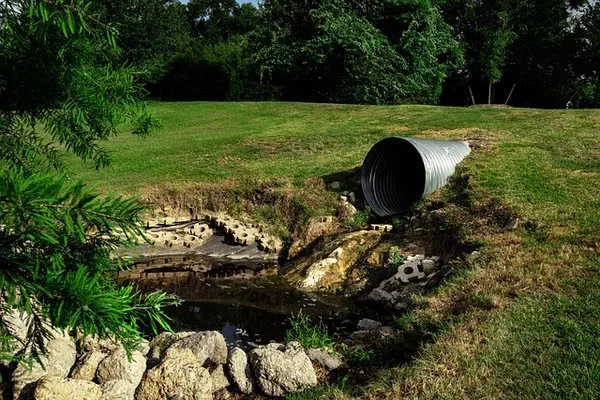Wastewater treatment stands as a pivotal component in the preservation of our environment and the sustenance of public health. Among its various stages, tertiary treatment emerges as the final frontier, providing an advanced level of purification to ensure the utmost quality of effluent discharged back into natural water bodies. In this discourse, we delve into the multifaceted purpose of tertiary wastewater treatment, elucidating its indispensable role in safeguarding ecosystems and fostering sustainable development.
Enhanced Removal of Contaminants
The primary aim of tertiary wastewater treatment is to further eliminate residual contaminants that may persist even after secondary treatment. While primary and secondary treatments effectively remove a substantial portion of pollutants, tertiary treatment steps up the game by targeting fine particulate matter, dissolved organics, and nutrients such as nitrogen and phosphorus. By employing advanced techniques like filtration, chemical precipitation, and biological processes like activated sludge, tertiary treatment ensures that effluent released into receiving waters meets stringent regulatory standards.
Protection of Aquatic Ecosystems
One of the foremost purposes of tertiary treatment is the preservation of aquatic ecosystems. Even minute traces of pollutants can wreak havoc on delicate aquatic flora and fauna, disrupting ecological balance and compromising biodiversity. By subjecting wastewater to rigorous tertiary treatment, harmful substances such as heavy metals, pathogens, and excess nutrients are significantly reduced, thereby minimizing the risk of ecological harm. This not only benefits aquatic life but also upholds the recreational and aesthetic value of water bodies, fostering a harmonious relationship between humans and nature.
Mitigation of Public Health Risks
Unsafe disposal of inadequately treated wastewater poses a grave threat to public health, potentially leading to the spread of waterborne diseases and contamination of drinking water sources. Tertiary treatment serves as a vital line of defense against such risks, ensuring that effluent discharged into water bodies is devoid of harmful pathogens and toxins. By incorporating advanced disinfection methods like UV irradiation, ozone treatment, and chlorination, tertiary treatment facilities effectively neutralize microbial pathogens, safeguarding public health and enhancing overall community well-being.
Support for Water Reuse and Resource Recovery
In an era characterized by growing water scarcity and increasing demand for sustainable resource management, tertiary treatment plays a pivotal role in facilitating water reuse and resource recovery initiatives. Treated wastewater from tertiary facilities, often referred to as reclaimed water, can be repurposed for various non-potable applications such as irrigation, industrial processes, and landscape maintenance. Additionally, advanced treatment processes employed in tertiary facilities enable the extraction of valuable resources such as nutrients, organic matter, and energy-rich biogas through techniques like anaerobic digestion and nutrient recovery. This not only conserves precious freshwater resources but also promotes the circular economy by turning wastewater into a valuable resource stream.
Compliance with Regulatory Standards
Stringent environmental regulations govern the discharge of wastewater into natural water bodies, mandating adherence to strict quality standards to prevent pollution and protect public health. Tertiary treatment plays a pivotal role in ensuring compliance with these regulatory frameworks by providing an additional layer of purification to meet or exceed prescribed effluent quality criteria. By investing in advanced treatment infrastructure and implementing robust monitoring and control measures, wastewater utilities can demonstrate their commitment to environmental stewardship and regulatory compliance, thereby earning the trust and confidence of regulatory agencies and the public alike.
Climate Resilience and Adaptation
The impact of climate change poses unprecedented challenges to water resource management, exacerbating issues such as droughts, floods, and water quality degradation. Tertiary treatment serves as a cornerstone of climate resilience and adaptation strategies, offering a flexible and adaptive approach to addressing emerging water quality concerns in the face of changing climatic conditions. By investing in resilient infrastructure, incorporating nature-based solutions, and adopting innovative treatment technologies, communities can enhance their capacity to withstand and mitigate the adverse effects of climate change on water resources, ensuring the long-term sustainability of wastewater management practices.
Promotion of Environmental Sustainability
At its core, the purpose of tertiary wastewater treatment extends beyond mere compliance with regulatory mandates; it embodies a commitment to environmental sustainability and the responsible stewardship of natural resources. By investing in advanced treatment technologies and adopting holistic approaches to wastewater management, societies can minimize their environmental footprint, conserve valuable water resources, and protect fragile ecosystems for future generations. Tertiary treatment serves as a beacon of sustainable development, demonstrating how the prudent management of wastewater can contribute to broader goals of environmental protection, social equity, and economic prosperity.
See Also Activated Sludge in Wastewater Treatment
Conclusion
In conclusion, tertiary wastewater treatment occupies a pivotal position in the hierarchy of wastewater treatment processes, providing an advanced level of purification essential for safeguarding public health, preserving ecosystems, and promoting sustainable development. By enhancing the removal of contaminants, protecting aquatic environments, mitigating public health risks, supporting water reuse initiatives, ensuring regulatory compliance, and fostering climate resilience, tertiary treatment serves as a linchpin of modern wastewater management practices. As we navigate the complex challenges of the 21st century, the importance of tertiary treatment in promoting environmental sustainability and resilience cannot be overstated. It is incumbent upon us to recognize the invaluable role of tertiary treatment and invest in its continued advancement to ensure a cleaner, safer, and more sustainable future for all.

